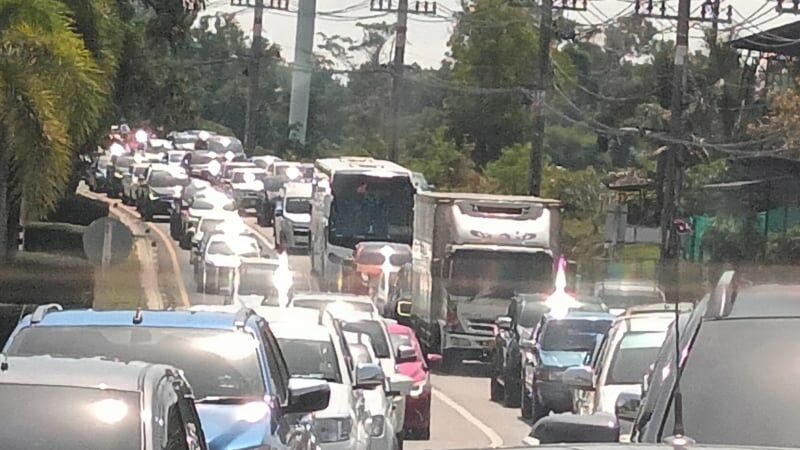Phuket’s plan to end traffic chaos with AI and expressway

Phuket’s notorious traffic congestion has long frustrated both locals and tourists, but a major two-part plan aims to finally solve the problem. Governor Sophon Suwannarat has unveiled ambitious strategies to transform the island’s traffic flow, including a new expressway and AI-powered traffic management—a first for Thailand.
The Thai government has approved a long-awaited expressway project that will connect Muang Mai to Koh Kaew, extend to Kathu, and feature a tunnel to Patong Beach. With a 60-billion-baht budget, the expressway is expected to be completed by 2029 and operational by 2030.
“Currently, Phuket’s traffic congestion is frustrating for tourists,” Governor Sophon admitted. “However, in the next three to four years, we expect smoother traffic flow.”
The new expressway is expected to significantly ease congestion, particularly on routes connecting Phuket’s busiest areas, making travel faster and more convenient for locals and tourists.

In a groundbreaking move, Phuket is set to become Thailand’s first province to implement an AI-driven traffic management system modeled after Singapore’s successful Smart Mobility 2030 initiative.
Under a 400-million-baht budget, the system will manage traffic at 85 key intersections across the island. Cameras and sensors will feed real-time data into a central control centre, which will optimise traffic flow every 40 seconds, significantly reducing congestion by 30-40%.
“The system will act as the brain of Phuket’s traffic network,” Governor Sophon explained. “It will integrate with all 11 police stations and 18 local agencies, ensuring real-time response to incidents and better road safety.”
The AI project is currently under study, with a Phuket delegation researching Singapore’s system. Once the proposal is finalised and approved, implementation could begin within four months, reported The Nation.
Singapore has already proven that AI-powered traffic solutions can deliver huge improvements, including a 20% reduction in peak-hour travel time, a 25% increase in public transport usage, a 10% drop in CO₂ emissions and PM2.5 pollution, and US$1 billion (around 33 billion baht) saved annually by avoiding costly new road expansions.
While it remains to be seen if Phuket can replicate Singapore’s success, the adoption of AI traffic control marks a historic first for Thailand, offering hope for a smoother, more efficient future on the island’s roads.
Latest Thailand News
Follow The Thaiger on Google News:


























